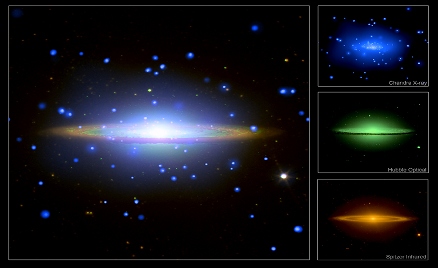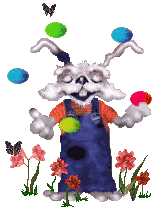
|
|







What, Buzzy? Oh, ok......First Buzzy wants me to tell you, that though he isn't very pretty, he contributes a lot to you....How, you ask? Well, it's like this...... |
Honeybees are important pollinators in agricultural, urban and natural landscapes. |
Unless someone or something stops it soon, the mysterious killer that is wiping out many of the nation's honeybees could have a devastating effect on America's dinner plate, perhaps even reducing it to a glorified bread-and-water diet. Honeybees don't just make honey; they pollinate more than 90 of the tastiest flowering crops you have! |
Among them: apples, nuts, avocados, soybeans, asparagus, broccoli, celery, squash and cucumbers. And lots of the really sweet and tart stuff, too, including citrus fruit, peaches, kiwis, cherries, blueberries, cranberries, strawberries, cantaloupes and other melons. |
Even cattle, which feed on alfalfa, depend on bees. So if the collapse worsens, we could end up being "stuck with grains and water," said Kevin Hackett, the national program leader for USDA's bee and pollination program. "This is the biggest general threat to our food supply," Hackett said. |
CCD was originally found only in Western honey bee colonies in North America. European beekeepers observed a similar phenomenon in Poland, Greece, Italy, Portugal, and Spain, and initial reports have also come in from Switzerland and Germany, but to a lesser degree. None of the supposed cases outside the US has been confirmed, as of June, 2007, to show the telltale signs of CCD. |
So what's causing this? That's the big mystery.... Lots of theories but no answers |
Poor nutrition or malnutrition |
One recently published view is that bees are falling victim to new varieties of nicotine-based pesticides. |
Climate Change |
Light Pollution |






Bees pollinate about 130 fruit, vegetable, nut, ornamental and fiber crops in the United States, contributing about $15 billion annually through improved crop yield and product quality. |
In fact, about one-third of the human diet comes from insect-pollinated plants, and the honeybee is responsible for 80 percent of that pollination, according to the U.S. Department of Agriculture. |
So what is this mysterious killer called, and what is it? Colony Collapse Disorder or CCD! |
It's a complete absence of adult bees in colonies, with little or no build-up of dead bees in or around the colonies. Presence of capped brood in colonies. Bees normally will not abandon a hive until the capped brood have all hatched.Presence of food stores, both honey and bee pollen. |
Here are some of the theories........ |
A preliminary survey noted a period of "extraordinary stress" affecting the colonies in question prior to their die-off, most commonly involving poor nutrition and/or drought. |
Pesticides |
Some beekeepers think the culprit may be climate change, in which the earth as a whole is warming but regional and local temperatures may drop much lower or higher than normal. "Erratic weather patterns caused by global warming could play havoc with bees’ sensitive cycles. A lot of northeastern U.S. beekeepers say a late cold snap is what did the damage to them this year". Climate change and earlier springs have also taken a toll. Plants like red maples and pussy willows, typically the first pollen sources for honeybees, have been blossoming weeks before the bees can fly in the spring, Conrad, author of Natural Beekeeping, said, so they miss out on that important source of pollen" |
Gosh and that's only a few of the believed causes! Poor Bees and also poor you! WHY? |
Increasing use of outside artificial lights, which interfere with the navigational ability of many moth species, and is suspected of interference with migratory birds, may also impact pollination. Moths are important pollinators of night blooming flowers and moth disorientation may reduce or eliminate the plants ability to reproduce, thus leading to long term ecological effects. This is a new field and this environmental issue needs further study. |
Bees play an important role in pollinating flowering plants, and are the major type of pollinators in ecosystems that contain flowering plants. Bees may focus on gathering nectar or on gathering pollen, depending on their greater need at the time, especially in social species. Bees gathering nectar may accomplish pollination, but bees that are deliberately gathering pollen are more efficient pollinators. |
In California, where honey bees are the predominant pollinator, the crop value in 2006 was US$1.5 billion. In 2000, the total U.S. crop value that was wholly dependent on honey bee pollination was estimated to exceed US$15 billion! A few billion difference, wouldn't you say? |
Remember the Web of Life? Everything is connected and when one thread breaks.....everyone suffers! |
Here's an example...Do you like Almonds? |
Unfortunately, until the cause can really be found, the bees will keep dying. There have been some recommedations given to bee keepers, such as do not combine collapsing colonies with strong colonies and if you feed your bees sugar syrup, use Fumagillin to name just two.These are precautions, not cures. |
What Buzzy? Buzzy says BUZZZZZZZ be kind to bees,today,tomorrow and for always....BUZzzzzzzz and he will be kind to you! |
HAVE I GOT A BUZZY TREE ADVENTURE FOR YOU! |
Archaeologists have discovered in northern Israel evidence of a 3,000-year-old beekeeping industry, including remnants of 30 intact behives, ancient honeycombs, and beeswax dating around 900 B.C ! |
It was a highly developed beekeeping industry, part of an organized economy, in an ultra-organized city. The finding was especially unique,because of its location in the middle of a thriving city — a strange place for thousands of bees! |
Well, that's my buzzy adventure for you, but I have a very special surprise.... |
Just click on Wilbur Bee to get your surprise! |
GOT TO BE BUZZIN' OFF FOR NOW ........ I WONDER WHERE BUTTERBYE IS?....... OR FOR THAT MATTER, THE OTHERS ! BETTER GO FIND THEM! YOU JUST KNOW THEY CAN'T STAY OUT OF TROUBLE WITHOUT ME! |
This article uses material excerpted from Wikipedia®. This article and photos are distributed under the terms of the GNU Free Documentation License |
Photo of Commander Baby Girl copyright 1999-present by J Shahverdian |
Music Have you heard the news? The bees are a 'dyin!!! (god help us) by RalphBuckley distributed under the Creative Commons license: Attribution-Noncommercial-Share Alike 3.0 |
